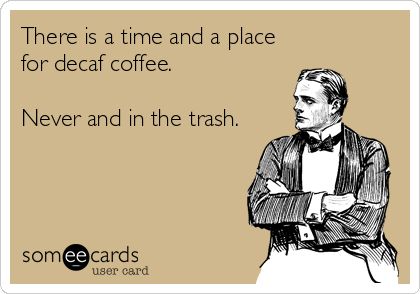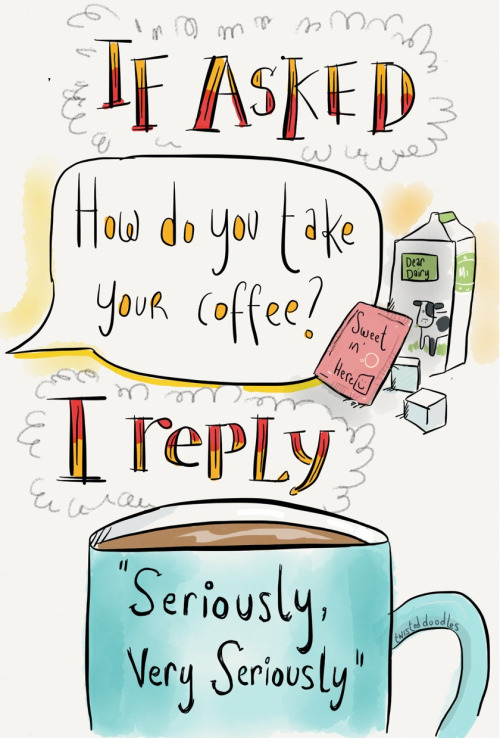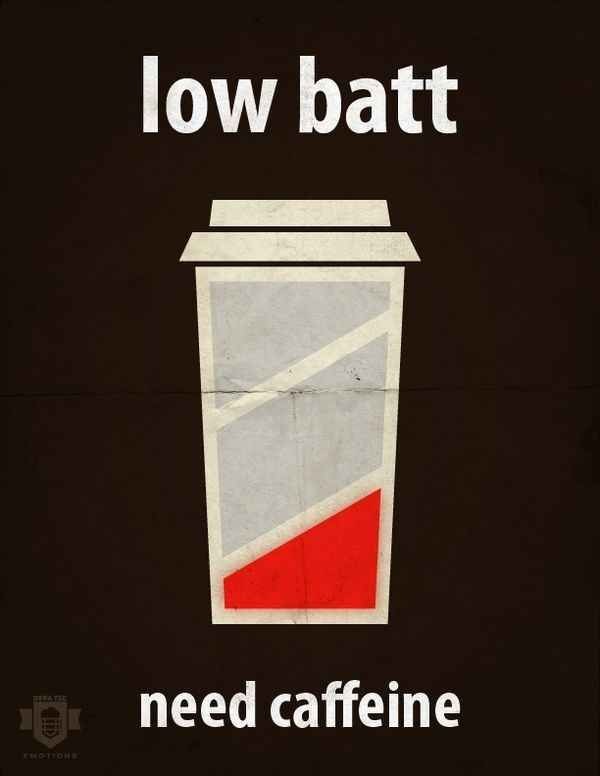 I recently read an article on Mental Floss (and you guys know how much I love Mental Floss) that I wanted to share with you guys. The article concerns the science behind caffeine. I guess I never really sat down and thought about the whys and the hows of caffeine, but this article brings some really interesting facts to the table.
I recently read an article on Mental Floss (and you guys know how much I love Mental Floss) that I wanted to share with you guys. The article concerns the science behind caffeine. I guess I never really sat down and thought about the whys and the hows of caffeine, but this article brings some really interesting facts to the table.
Lucas Reilly, Associate Editor at Mental Floss explains:
Caffeine isn’t the kickstarting jitter-drug you think it is. If anything, it’s a sneaky imposter.
First, a little biology. As your neurons fire throughout the day, a neurochemical called adenosine builds up in your body. The nervous system uses special receptors to monitor your body’s adenosine levels. As the day wears on, more and more adenosine passes through those receptors—and it makes you sleepy. It’s one of the reasons you get tired at night.
 Caffeine, however, is a stealthy impersonator. It’s the same size and shape as adenosine, and when you sip your morning joe, your adenosine receptors can’t tell the difference. Specifically, caffeine attaches to the A1 receptor. With caffeine docked at the receptor, a lot of your body’s adenosine molecules can’t enter. It creates a traffic jam of sorts. With all that adenosine blocked, the caffeine keeps you from getting tired.
Caffeine, however, is a stealthy impersonator. It’s the same size and shape as adenosine, and when you sip your morning joe, your adenosine receptors can’t tell the difference. Specifically, caffeine attaches to the A1 receptor. With caffeine docked at the receptor, a lot of your body’s adenosine molecules can’t enter. It creates a traffic jam of sorts. With all that adenosine blocked, the caffeine keeps you from getting tired.
But that’s not where coffee’s kick comes from. With the adenosine receptor clogged, neurotransmitters like dopamine and glutamate can get a head start. Your dopamine levels swell, giving you a mild jolt of energy. In a way, caffeine is like a bouncer. It blocks the door, keeping the tired molecules out while the more stimulating molecules party on.
But the party can last for only so long. Caffeine may give you that much-needed morning boost, but it can also make you crash—hard. It takes about four cups of coffee to block half of the brain’s A1 receptors. With that many receptors clogged, the adenosine mounting in your body has nowhere to go. So when the caffeine wears off, all that extra adenosine rushes through your receptors. It takes a long time for your body to process the huge flow of new metabolites. And guess what? It leaves you feeling even groggier than you felt before.
Fascinating, right? It really got me thinking about my caffeine consumption. Will it make me stop drinking coffee? Probably not. But, it will certainly make me stop drinking coffee to wake up, or get an energy boost. I love the coffee ritual: the warmth, the introspection, and the taste (once you add enough cream and sugar, that is). But, I don’t love the crash. Knowing the science behind the reaction is fascinating. To me, at least. The more you know, right? To read the comments, or view the original article, click here.
What do you think? Do you depend on the jolt of coffee? Are you addicted to caffeine? Is coffee part of your ritual? As always, let us know in the comments!







One Comment